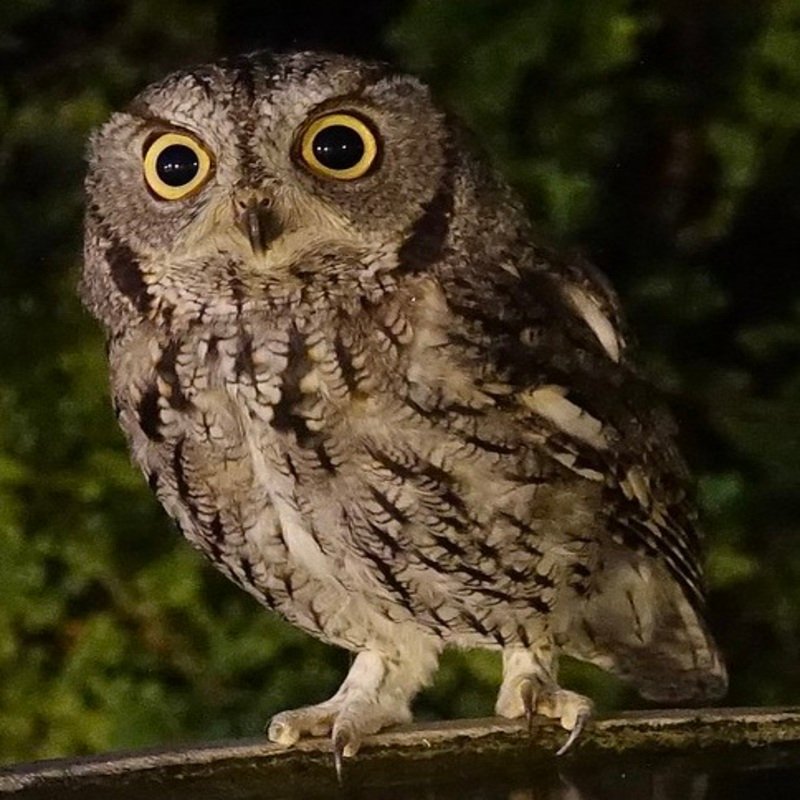Known as the western screech owl, Megascops kennicottii in Latin, in North and Central America, it is a small owl that is closely related to the eastern screech owl in appearance and behavior. Robert Kennicott, an American naturalist, is commemorated in the species’ scientific name. Originally, this bird was referred to as the Kennicott’s Owl by the scientific community.
Quick Overview: Megascops Kennicottii – Western Screech Owl
Body size: Around 7-10 in (18-25 cm) and a weight of 153 g (5.4 oz)
Main colors: Gray, Brown, Red-brown, White, Yellow
Range: Western United States
Migratory Bird: No
Best time of the year to see in the U.S.: All Year (January – December)
Conservation Status: Least Concern
Western screech owl Description
With a base hue that can range from gray to brownish to reddish-brown, they are exceptionally effective concealment birds. Although the upper parts are white, the breast and belly are pale with dark, spidery streaks running through them. The face is pale, with dark arcs defining the features. The pupils of the eyes are yellow.

Size
These owls have a length of 7-10 in (18-25 cm) and a weight of 153 g (5.4 oz). Their wings could range 20 in (51 cm).
Feeding
Tiny microtine rodents and deer mice, as well as larger insects and small birds, are the most frequently encountered prey, depending on availability.
Habitat
They can be found in woods (especially amid deciduous trees) at heights of up to 6,000 feet, where they can be found. Their tolerance for humans is generally high, and they can be found in suburban or park settings, as well as in forested backyards with a nest box.
Behavior
Despite the fact that Western Screech-Owls are nocturnal hunters, they are significantly more frequently heard than seen. They spend their days either in a roost hole or peering out from the entrance, where they are occasionally discovered by large groups of songbirds swarming around them.
Scientific Classification
- Kingdom: Animalia
- Phylum: Chordata
- Subphylum: Chelicerata
- Class: Aves
- Order: Strigiformes
- Family: Strigidae
- Genus: Megascops
- Species: Megascops kennicottii
Best time of the year to see
In the United States, the best time of year to see these birds is all year round, regardless of the season. This refers to any month of the year between January and December.
Distribution of the Western screech owl in the USA
Western North America stretches from northern Canada and Alaska all the way to the heart of Mexico.
The western screech owl can be found in the following states in the United States –Arizona, California, Colorado, Hawaii, Idaho, Nevada, New Mexico, Texas, Utah, Oregon, and Washington.
